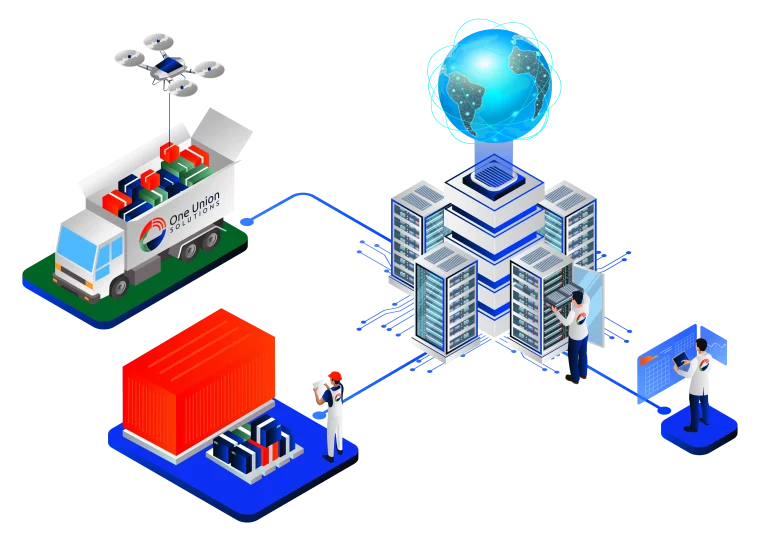Improving The Effectiveness Of Freight Forwarding
Transporting things in Canada from one location to another involves hundreds of personnel and procedures. In today’s speedy delivery and tight deadlines, orchestrating everything is a massive challenge for individuals to undertake independently. International freight forwarders employ digitalization and other technologies to increase productivity.
The use of digital technology is essential in today’s freight forwarding operations. Information gathered from all points in the supply chain together provides a comprehensive view of the movement of commodities. Timelines become more reliable and accurate as a result. It also offers high protection for the physical product and the digital information that describes it. Approval procedures, claims management, and payment flows may all be sped up using government portals and digital linkage to logistical support.
Customer Satisfaction Raised
Because of growing digitization, clients get a better experience since keeping their schedules is simpler. Freight forwarding software enhances delivery precision because of the real-time insights it provides consumers. Traditional revenue-boosting negotiations might take days, but digital quoting can shorten them to hours.
Freight Forwarding and Its Varieties
Freight forwarding services come in several forms or modalities to accommodate a wide range of shipping and transportation businesses.
Transport Through The Ground
The term “ground transportation” describes the mode of conveyance utilized for ground cargo. This transport, often known as “door-to-door delivery,” is typically used for local shipments. Both intrastate and interstate freight transport rely on the usage of trucks for loading and unloading cargo.
About twenty-six pallets may be loaded into a regular-sized vehicle. Depending on traffic, road hazards, and infrastructure problems, this option may be too costly to be practical.
Shipment Via Sea
Shipping products by ship is known as “sea freight shipping.” Freight transport by sea often involves using ferries and ships to transport goods across oceans.
Shipping large containers by sea is the most common and oldest option for transporting these items inside and between countries.
In What Ways Does Freight Forwarding Provide Difficulties?
Despite its usefulness, freight forwarding is only a good match for some online retailers. You may decide whether you require freight forwarding services by considering the pros and cons of using this service.
There Need To Be More Opportunities For Direct Intervention
Freight forwarders depend on a vast logistical network but still need help managing every supply chain step. Their main job is to aid you in organizing the shipment of your products. They have less direct influence over the subcontracted parts of the process.
Freight forwarders are customers’ only point of contact since they seldom allow customers to communicate directly with their contracted carriers. Freight forwarders are only ideal choices if you require complete oversight of your shipments from start to finish.
It is crucial when choosing a freight forwarder. They boast a tech-enabled interface where you can monitor, handle, and schedule your freight transportation online. The procedure will be much simplified because of this. You will have complete oversight of your freight shipments with the help of real-time tracking. This will allow you to better plan for any setbacks.
Unanticipated And Unforeseen Holdups
Even the most experienced freight forwarder may only sometimes be able to anticipate or prevent a delay. Truck driver shortages, natural disasters, national and regional situations, and stormy weather may all create unexpected delays that are difficult to forecast. Last-minute staffing shortages may affect any logistics company, whether established or well established.
When these delays occur, it might not be easy to acquire explanations or solutions from your freight forwarder. Every freight forwarder in existence carries commodities for hundreds of other businesses. Managing your freight contracts, on the other hand, gives you greater leeway to adapt to the unexpected.
Conclusion
All local or international companies should work with a freight-forwarding agency. They guarantee that the shipping procedure is quick, safe, cheap, and dependable in every other way.
Freight forwarding companies benefit significantly from the increased productivity and efficiency brought about by the widespread use of freight forwarding management software. Since each client has its demands, our expert staff will work with you to develop a customized plan for implementing our Importer Service. Please do not wait to Contact Us. We at One Union Solutions are happy to help in any way we can.

